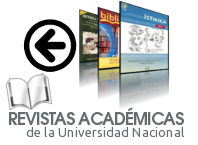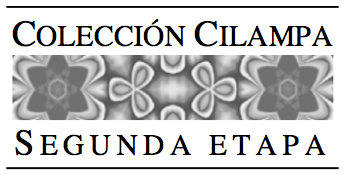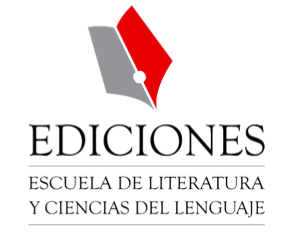¿Leer como espectadores o partícipes críticos?
DOI:
https://doi.org/10.15359/rl.2-64.9Keywords:
critical literacy, critical thinking, reading, foreign language programsAbstract
This paper offers a critique on the tendency to give priority to reading comprehension strategies on a superficial level, at the expense of other strategies requiring foreign language learners to read more critically to evaluate the meaning within texts. It also reports on the results of a study conducted with a group of students on the implementation of critical reading tasks, and offers an analysis of the experience, thus providing caveats as to the possible pitfalls of bringing critical literacy into reading courses and English as a Foreign Language programs.
References
Abednia, A. “Practicing Critical Literacy in Second Language Reading,” International Journal of Critical Literacy 6, 2 (2015): 77-94.
Bean, T. W., and K. Moni. “Developing Students’ Critical Literacy: Exploring Identity Construction in Young Adult Fiction,” Journal of Adolescent and Adult Literacy 46, 8 (2003): 638-648.
Correia, R. “Encouraging Critical Reading in the EFL Classroom,” English Teaching Forum 44, 1 (2006): 16-19, 27.
Corrigan, P. “Attending to the Act of Reading: Critical Reading, Contemplative Reading, and Active Reading,” Essays in Reader-Oriented Theory, Criticism, and Pedagogy 63-64 (2012): 146-173.
García, O. Bilingual Education in the 21st Century: A Global Perspective. Malden, MA/Oxford: Wiley/Blackwell, 2009.
Grosfoguel, R. “The Epistemic Decolonial Turn,” Cultural Studies 21 (2007): 211-223. DOI:10.1080/09502380601162514.
Huang, S.-Y. “Reading ‘Further and Beyond the Text’: Student Perspectives of Critical Literacy in EFL Reading and Writing,” Journal of Adolescent and Adult Literacy 55, 2 (2011): 145-154. DOI:https://doi.org/10.1002/JAAL.00017.
Huh, S. “Instructional Model of Critical Literacy in an EFL Context: Balancing Conventional and Critical Literacy,” Critical Inquiry in Language Studies 13, 3, (2016): 210-235. DOI:10.1080/15427587.2016.1154445.
Izadinia, M., and A. Abednia. “Dynamics of an EFL Reading Course with a Critical Literacy Orientation,” Journal of Language and Literacy Education 6, 2 (2010): 51-67.
Ko, M.-Y. “A Case Study of an EFL Teacher's Critical Literacy Teaching in a Reading Class in Taiwan,” Language Teaching Research 17, 1 (2013a): 91-108. DOI:10.1177/1362168812457537.
Ko, M. “Critical Literacy Practices in the EFL Context and the English Language Proficiency: Further Exploration,” English Language Teaching 6, 11 (2013b): 17-28. DOI:10.5539/elt.v6n11p17.
Lewison, M., A. S. Flint, and K. Van Sluys. “Taking on Critical Literacy: The Journey of Newcomers and Novices,” Language Arts 79, 5 (2002): 382-392.
Mignolo, W. “Epistemic Disobedience, Independent Thought and Decolonial Freedom,” Theory, Culture and Society 26 (2009): 7-8. DOI:https://doi.org/10.1177/0263276409349275.
Paesani, K., H. W. Allen, and B. Dupuy. A Multiliteracies Framework for Collegiate Foreign Language Teaching. Upper Saddle River, NJ: Prentice Hall, 2016.
Papadopoulos, I., and E. Griva. “Promoting Critical Literacy in the EFL Context: Implementing a Project to Young Learners,” European Journal of Language and Literature Studies 7, 1 (2017): 107- 210. DOI:https://doi.org/10. 26417/ejls.v7i1.p107-120.
Paul, R., L. Elder, and Foundation for Critical Thinking. The Miniature Guide to Critical Thinking: Concepts and Tools. Dillon Beach, CA: Foundation for Critical Thinking, 2009.
Sperling, M., D. Appleman, K Gilyard, and S. Freedman. “Voice in the Context of Literacy Studies,” Reading Research Quarterly 46, 1 (2011): 70-84. DOI:10.1598/RRQ.46.1.4.
Stevens, L. P., and T. W. Bean. Critical Literacy: Context, Research, and Practice in the K-12 Classroom. Thousand Oaks, CA: Sage, 2007.
Taglieber, Loni Keis. “Critical Reading and Critical Thinking,” Ilha Do Desterro 44 (2008): 141-163. DOI:https://doi.org/10.5007/2175-8026.2003n44p141.
Wallace, C. “Critical Language Awareness: Key Principles for a Course in Critical Reading,” Language Awareness 8, 2 (1999): 98-110. DOI:https://doi.org/10.1080/09658419908667121.
Wallace, C., “Critical Literacy Awareness in the EFL Classroom,” Critical Language Awareness, N. Fairclough, ed. London: Longman, 1992, 59-92.
Zabihi, R., and M. Pordel. “An Investigation of Critical Reading in Reading Textbooks: A Qualitative Analysis,” International Education Studies 4, 3 (2011): 80-87. DOI:https://doi.org/10.5539/ies.v4n3p80.
Published
How to Cite
Issue
Section
License
Principios básicos:
a) Los autores conservarán los derechos de propiedad intelectual de sus aportes o artículos;
b) Cada autor deberá indicar expresamente que ese artículo lo entrega, en calidad de exclusividad, a la revista LETRAS; y
c) La revista Letras se reservará el derecho de autorizar para fines académicos no lucrativos la reproducción y uso de ese material por parte de terceros, siempre que éstos indiquen expresamente la procedencia del artículo. Todo ello se postula en concordancia con la normativa de "Creative Commons Atribution License", recomendada.

This work is licensed under a Creative Commons Attribution-NonCommercial-NoDerivs 3.0 Costa Rica License.















